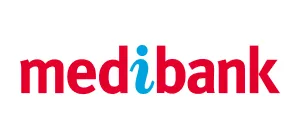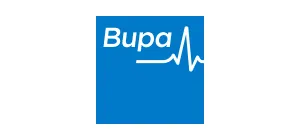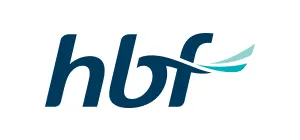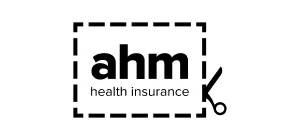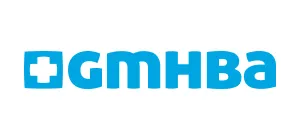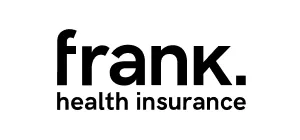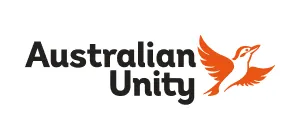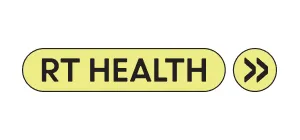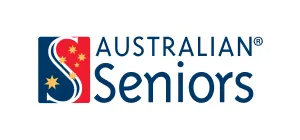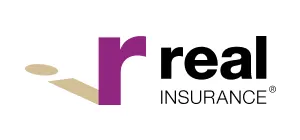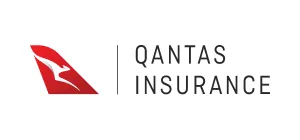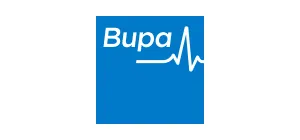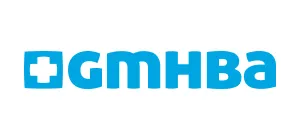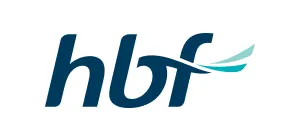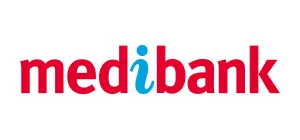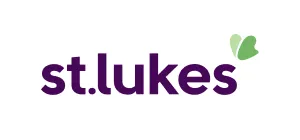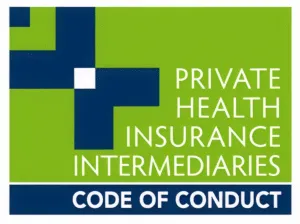What is private health insurance with dental cover?
'Dental cover' refers to health insurance that provides coverage for dental treatment. There are several different types of dental cover available in Australia, each covering a range of treatments and procedures.
Dental cover can be offered through an extras policy, as well as a hospital policy if hospitalisation is required as part of the treatment. This means you can be covered for going to the dentist for a check-up or a filling, or for having your wisdom teeth removed in hospital.
How private health insurance with dental cover works
Private health insurance with dental cover works similarly to many other forms of private health insurance. Once you’ve selected a policy and signed up, you’ll often need to serve a waiting period before you can make a claim for dental treatments.
You can typically claim part of the cost of each dental treatment on your health insurance, though you may need to consider annual limits. You may also need to contact your provider to submit a claim, or you may be able to provide your membership details to your dentist for them to put in a claim on your behalf (usually through HICAPS). This may be easier if your dentist is part of your health fund’s network of preferred providers.
How to compare dental cover policies
Look beyond the premium and consider how well each policy suits your needs and budget. The right policy for you will depend on the type of dental care you need or expect to need, how often you visit the dentist, and whether you prefer to use a specific clinic or provider. A little time spent comparing can save you a lot of money in the long term—and maybe even a few extra visits to the dentist down the track.
When comparing dental insurance policies, look for:
- The type of cover: Do you need general dental, major dental, or both? Also consider whether you’d benefit from additional services like optical or physiotherapy under the same extras policy.
- Benefits and limits: Check how much you can claim back per visit, the annual limit, and any lifetime limit (especially for orthodontics).
- Waiting periods: Look for how long you’ll need to wait before claiming certain treatments.
- Preferred provider networks: See if your regular dentist is included, and whether the policy offers ‘no gap dental’.
- Premiums vs value: Weigh the cost of your premiums against the benefits you’re likely to claim.
Comparing dental insurance side by side can help you find a policy that strikes the right balance between cost and cover and ensures you’re getting good value for your regular dental care.
Know the difference between general and major dental cover
The main difference between general and major dental cover comes down to the type and cost of treatment. General dental insurance typically helps cover routine and preventative treatments such as check-ups, cleans, fillings and X-rays—the kinds of services most people need regularly.
Major dental cover, is designed for more complex and costly procedures that may involve surgery or long-term treatment, such as crowns, bridges, dentures, root canals or orthodontics (which is sometimes classified in its own category). When comparing dental insurance, check which category a treatment falls into; as benefits, limits and waiting periods can vary significantly between general and major dental.
What does general dental cover include?
General dental is a category often included in most extras policies and helps to cover the cost of routine dental treatments, such as check-ups, cleaning, fillings, and X-rays. Depending on your policy, general dental may cover things like:
- Routine check-ups and examinations—regular visits to assess your oral health.
- Professional teeth cleaning (scale and polish)—removes plaque and tartar build-up.
- Fluoride treatments—to help strengthen teeth and prevent decay.
- Basic fillings—to repair small cavities.
- X-rays—used to identify issues that aren’t visible on the surface.
- Fissure sealants—protective coatings applied to reduce the risk of decay in back teeth.
- Simple extractions—removing a tooth when it’s not complex (coverage varies between health funds).
What does major dental cover include?
Major dental cover usually includes:
- Indirect teeth restorations such as crowns, veneers (medically necessary), bridges, implants and dentures
- Periodontics (e.g. surgical gum treatments)
- Endodontics (e.g. root canal treatments)
- Orthodontics such as braces and Invisalign
- Tooth extractions, such as wisdom teeth removal. This may be covered under general dental for certain policies, but note that the complexity of the procedure generally determines the category it falls under.
Extras policies only cover out-of-hospital treatments, and, in some cases, day surgery. If your dental treatment requires a ‘hospital admission’ (such as an overnight stay), your extras policy won’t cover you for that admission. To be covered for both your dental treatment and your hospital stay, consider a combined hospital and extras policy.
To find out what a policy covers, consult its Private Health Information Statement (PHIS) or contact the provider directly.
If you’re planning to have major dental work done, ask your dentist for a quote (with item numbers). Then, contact your health fund to find out if you’re covered, how much you can claim back, and what out-of-pocket costs you’ll need to pay.
Keep in mind that some health funds have ‘preferred suppliers’, which could offer low-gap or no-gap treatment.
What are the waiting periods for health insurance with dental cover?
A waiting period is the amount of time you have to wait before you can make your first claim for a particular treatment or service. How long your waiting period is will depend on the treatment or service, your policy and provider.
Typical waiting periods under extras cover can be around two to six months for general dental, and 12 months or more for major dental procedures such as orthodontics.
For hospital policies, the maximum waiting period an insurer can set for dental surgery is two months though longer waiting periods may apply for pre-existing conditions (i.e. conditions you had or were showing symptoms of before your policy began).
What does ‘no gap dental’ mean?
‘No gap dental’ refers to dental treatments where your health fund covers the full cost up to your annual limits, meaning you don’t have to pay anything out of pocket. This usually applies to preventative services such as check-ups, cleans, fluoride treatments and X-rays when you visit a dentist that’s part of your health fund’s preferred provider network.
However, terms and conditions can differ between providers. For instance, there may be a limit to how many visits per year are fully covered, or the benefit may only apply to certain dentists. If this is the type of dental insurance cover you want included in your policy, confirm whether the fund offers no gap dental and what services it includes.
How much can I claim on dental cover?
For extras policies, providers typically allow you to claim a percentage of the cost of your dental treatment or you may be entitled to a set amount.
In addition, extras cover typically comes with annual limits, which is the maximum amount of money you can claim for a particular service.
Providers may also specify a combined annual limit which applies across a group of services, for example, a combined annual limit for general and major dental, physiotherapy and chiropractic services. This combined limit can differ greatly, so check a policy's PHIS for more information.
Almost all health funds have a lifetime limit for orthodontic benefits such as braces, according to the Commonwealth Ombudsman. This means that once you have claimed the maximum benefit, you won’t be able to claim further benefits during your lifetime.
Why take out dental cover?
Medicare generally doesn’t offer rebates for out-of-hospital dental treatment, which means you’ll usually need to pay the full amount yourself. The average cost of a dental check-up is $233, according to the most recent Australian Dental Association (ADA) Dental Fees Survey. This means you could be facing over $450 in dental bills per year for just two regular check-ups. Taking out a health insurance policy with dental cover can help to cover the cost of eligible dental treatments and services.
Looking after your oral health can be important to your overall wellbeing, as without it your quality of life and ability to speak, socialise and eat may be compromised. This can result in discomfort, pain and embarrassment, according to the Australian Institute of Health and Welfare.
Does health insurance cover visits to any dentist?
An provider's dental policy will usually contribute towards the cost of dental treatment performed by any qualified registered dentist. Some health funds also offer ‘no gap’ payment options, which means you won’t have any out-of-pocket costs (depending on your annual limits) if you visit one of its branded clinics or a partner clinic.
It’s also worth checking whether your health fund and dentist accepts claims via HICAPS. HICAPS is a common claims system that allows your dentist to process your claim immediately, rather than you paying the bill in full and then claiming it back from your health fund later.
Can I get complete coverage with dental insurance?
Several health funds offer 100% back on regular check-ups and other eligible preventative services when you visit a dentist in the fund’s network. This is often known as ‘no gap dental’.
Preventative services typically include scale and clean, and fluoride treatment, with certain funds also including dental x-rays.
Check with the individual provider to see what is and isn’t included and what other terms and conditions apply to its dental insurance policies. For example, no gap dental could be subject to annual limits. The fund may also have a cap on the number of check-ups you can claim 100% back on per year.
Can I get dental cover with no waiting period?
Some health insurance providers may offer dental insurance with no waiting period as a part of a deal to attract new customers. This typically only applies to general dental services. It’s important to note that a deal or discount shouldn’t be the sole reason you select a policy.
Can I get dental cover without extras cover?
In Australia, it's unlikely to have dental cover without an extras policy, as dental benefits are typically included. Extras cover helps pay for out-of-hospital healthcare services not covered by Medicare, such as optical, physio and dental. However, some health funds may offer limited policies that focus primarily on dental, or allow you to tailor your extras cover to include dental only. If you’re specifically looking for dental-only insurance, it’s important to compare the level of cover, waiting periods and claim limits to ensure it meets your needs and budget.
Does dental cover cover cosmetic dental surgery?
Extras health insurance generally doesn’t cover cosmetic dental surgery, such as aesthetic veneers or teeth whitening, unless the treatment is deemed medically necessary. You may find that your policy does provide cover for cosmetic dental procedures deemed medically necessary, like braces and dental aligners, crowns and implants to replace lost or missing teeth.
Coverage for these dental procedures will vary from policy to policy, so it’s important to check the PHIS or contact the provider directly for more information.
How to find the best private health insurance for dental cover
Remember that the best dental insurance policy for you may be different to what’s best for other Australians. You’ll need to consider your own financial situation and lifestyle needs when comparing and selecting a health insurance policy.
Some of the questions to ask yourself include:
- Do you want extras only, hospital only, or hospital and extras cover?
- Do you want major or general dental cover?
- Is your preferred dentist in the provider’s network?
- How much are you prepared to pay in premiums?
The best dental insurance policy for you may also be affected by where you’re living and who it covers (e.g. yourself only, you and your partner, or your whole family). Overall, the more cover you want, and the more people you want the policy to cover, the more you may need to pay in premiums.
Does Medicare cover dental treatments?
Medicare only covers basic dental treatments for eligible children under the Child Dental Benefits Schedule. Some adults, namely those who have a Health Care Card or Pensioner Concession Card, may be eligible for public dental services, however, waiting lists for treatment can be long.


